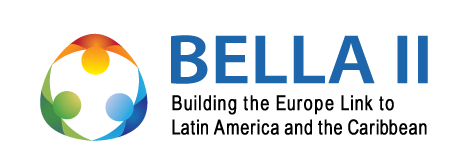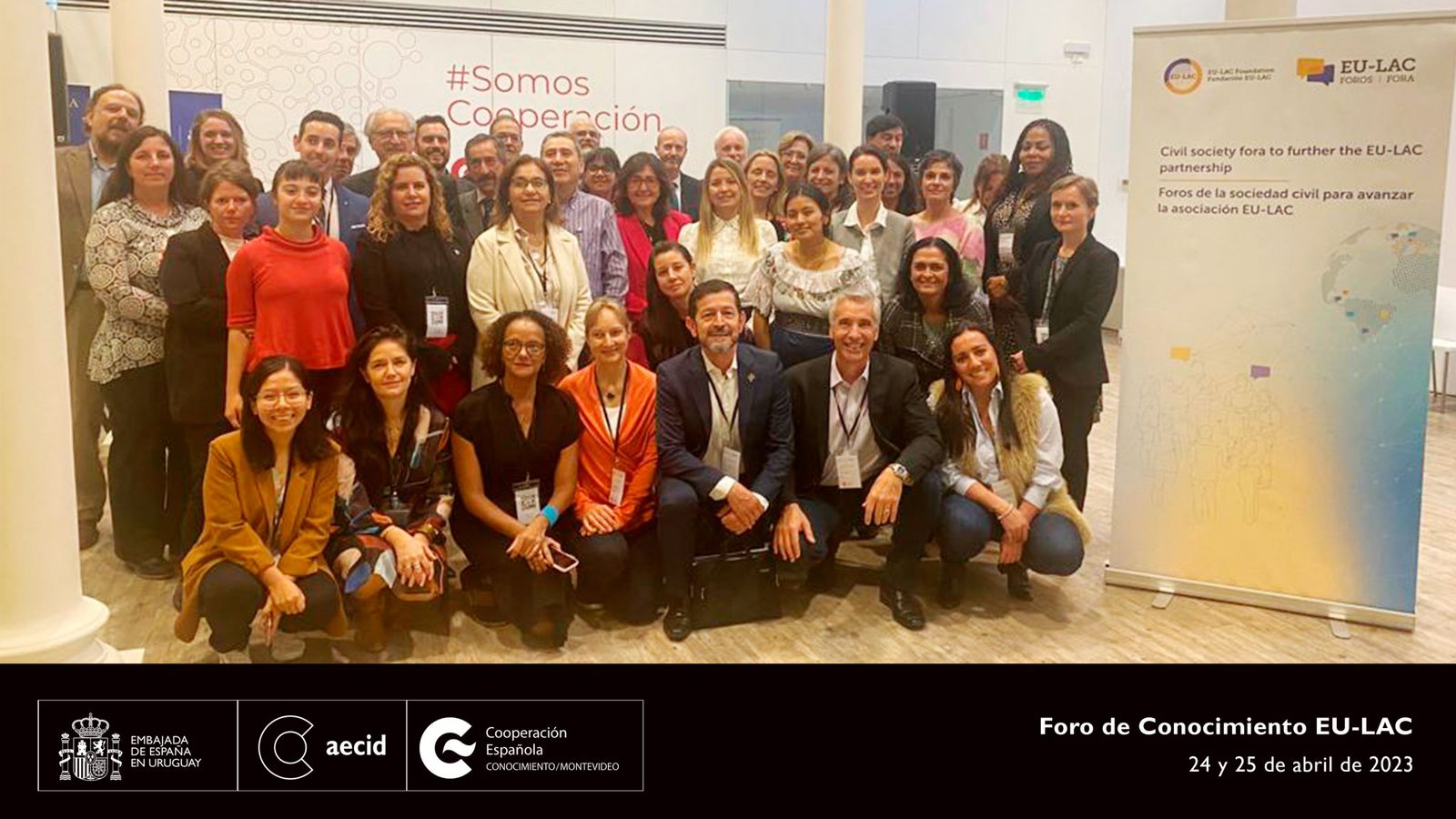RedCLARA representatives participated in the Knowledge Forum organized by the EU-LAC Foundation, the Uruguayan International Cooperation Agency (AUCI), and the Spanish Agency for International Development Cooperation (AECID), on April 24 and 25, in a hybrid format.
This forum is one of the events in preparation for the third EU-CELAC Summit of Heads of State and Government, to be held in Brussels on July under the theme "Renewing the bi-regional partnership to strengthen peace and sustainable development."
The objective was to generate inputs for the adoption of common lines of programmes and public policies, as well as initiatives of civil society actors that help to articulate and strengthen the links between Europe, Latin America, and the Caribbean societies, in the field of access to knowledge, higher education, and science, technology, and innovation.
"The idea of knowledge exchange and higher education has been institutionalized since the very beginning of the EU-LAC Foundation. The forum aims to generate proposals and relevant information for political leaders to prepare for the EU-CELAC Summit," explained Adrian Bonilla, executive director of the EU-LAC Foundation, during the opening session.
Ahead of the UE-CELAC Summit, this meeting facilitated knowledge exchange and joint work between LAC and European representatives of civil society networks and organizations, academic experts, and international organizations specialized in the subject.
The Forum included presentations to inspire and guide the dialogue and collaborative work in three thematic groups (each in virtual and face-to-face mode): (1) Cooperation in science, technology, and innovation; (2) Towards a Common Higher Education Area; and (3) Closing gaps in access, equity, quality, and capacities. The groups discussed the balance of the situation and best practices, challenges, shared interests, and recommendations.
RedCLARA Director of International Cooperation, Academic Relations, and Communications, Mark Urban, participated in group one, and the Coordinator of Academic Projects, Laura Castellana, in group two. Both were the rapporteurs of their respective groups.
Mark Urban shared the conclusions of group number one. It emphasizes the greater collaboration between Europe and LAC, as evidenced by the new Digital Alliance, as well as the greater availability of infrastructure for research. In terms of policies, programs, and initiatives, group one highlighted the BELLA Project and its transatlantic cable linking the two continents, the GBIF portal of LifeWatch ERIC, Euroclima+, and the network of national points of the Horizon Program, among others.
As lessons learned, the group mentioned the importance of aligning expectations between both regions, establishing science governance mechanisms, and articulating science and technology systems. Among the recommendations was the importance of strengthening all the pillars of the Digital Alliance.
Group two concluded that it is necessary to build a common space for the integration of higher education in the region, similar to the European, explained Laura Castellana. The main recommendations focused on strengthening bi-regional political dialogue, involving civil society (teachers-students) and youth, promoting innovative policies, fostering inclusion and diversity, promoting mobility among institutions, making better use of funding, and supporting the creation of networks, as well as an organization that links them all.
Group three highlighted that there are technological divides and asymmetries between Europe and LAC, among the countries of the region and within them. The gaps identified are related to gender, geographic location, economics, migration, disability, race, and sexual orientation. "We visualized different levels of development that should be taken into account in science and technology policies," explained the director of the linkage center at the Technological University of Uruguay, Elianne Elbaum.
The group emphasized the Right to Technology, the need to make public investments and to create policies with citizen participation, as well as the urgency of multidisciplinary responses to face current challenges.
Watch the conclusions of the EU-LAC Forum: https://www.youtube.com/watch?v=ZKOPRE4N74Q





